
The second season of Hulu’s Ramy, the critically acclaimed Muslim-American comedy series from Hulu (produced by A24) with a title character who’s loosely fashioned upon creator Ramy Youssef, recently released its second season. This remains a poignant series, although less sweet this time around, and it arrived during what can only be described as a fraught time for marginalized U.S. communities. The timing is purely coincidental, of course, but the show does provide an opportunity to watch one young adult’s attempts to truly grasp his own culture as he fruitlessly works toward enlightenment. And Ramy (this part is fascinating), like those who hashtag their way into feeling like they’re making a difference without action, often ends up inadvertently doing more harm than good, despite his professed desire to be a decent person.
Actually, Ramy (the character, not the series, which is still great) becomes pretty insufferable by the end of this season. I trust that the show’s writers have a plan for him, and that he might eventually experience true growth, rather than always trying to maximize his personal gains without any effort to earn what he’s already got in hand. He’s a guy who coasts on his apparent earnestness and but ends up f*cking over those who trust in him. By the end of the season, he’s lost almost all his allies, and it will be interesting to see how he can truly claw his way to redemption.
In the meantime, I’m going to attempt to spoil as little as possible while providing some reasons why you should watch Ramy — after all, Youssef joked during his Golden Globe win that “you guys haven’t seen my show” — and appreciate that life might feel tough right now, but at least you didn’t make half the mistakes he’s made lately.
1. So Much Comeuppance For A Lead Character:

Yes, Ramy’s the protagonist, but damn, he’s one hell of a hot mess, and I appreciate that the show doesn’t indulge him without consequence. During the first season, I simply appreciated watching a young adult male looking for love in all the worst places while feeling pressured by his family (and culture) to tie the knot with a nice young lady. That’s something that women feel all the time, regardless of social or religious affiliation, and it’s still reflected throughout popular culture even though romcoms at the movies haven’t been a real thing for years. This year, though, it was time for Ramy to make good on his promises, and boy did he screw them up. And the show was prepared, especially in this second season, to not let him escape unscathed.
Look, Ramy isn’t a terrible person at heart, but he does a lot of indefensible things. He’s also guilty of believing that wanting to be a good guy gives him endless chances to f*ck up and hurt people while pleading for forgiveness that he hasn’t earned. He has terrible judgment, and a lot of times, people get hurt as a result. Sometimes, they get hurt physically (and brutally), but many other times, he hurts people emotionally and spiritually. This doesn’t always involve his love life — he befriends and thoughtlessly vouches for a PTSD-afflicted Iraqi vet (despite the guy really loathing Muslims), and this turned out disastrously. Ramy simply doesn’t think beyond himself because “helping” the vet was a way for him to try and pump up his own reputation with Sheikh Malik.
That brings me to my next point…
2. Mahershala Ali, That’s The Whole Point:
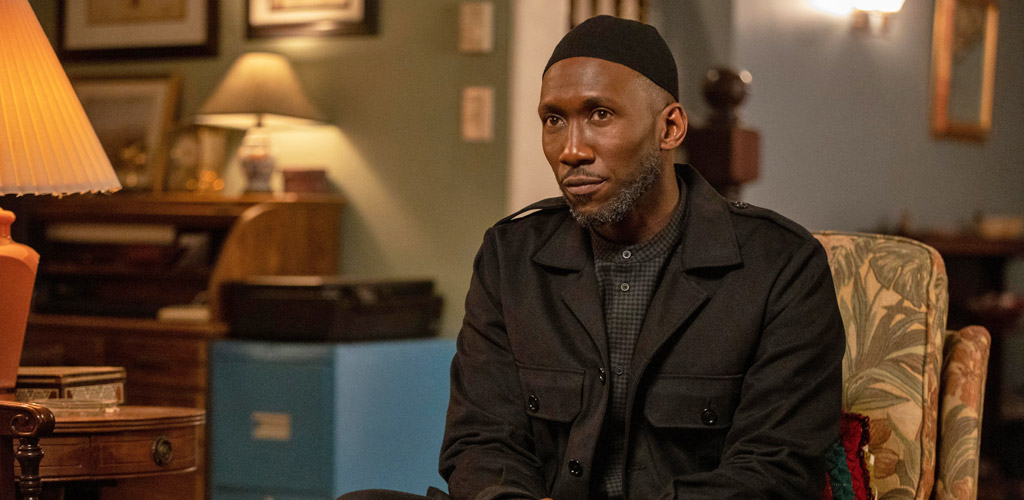
The Oscar winner does not disappoint while joining the show’s sophomore run. Yes, he’s being referred to as the “Hot Sheikh” (a play on the fox-fearing Hot Priest from Fleabag), but Mahershala drives his role home with the utmost seriousness. The truly telling development is that while he’s Ramy’s new spiritual advisor, he also ends up learning a lot along the way as well. This Sheikh’s governed by peace and coolness, and while he’s rarely ruffled, he finds himself tested by his charge. He even alludes to his “old ways” at one point, and we don’t learn what he’s talking about, but it sure sounds ominous.
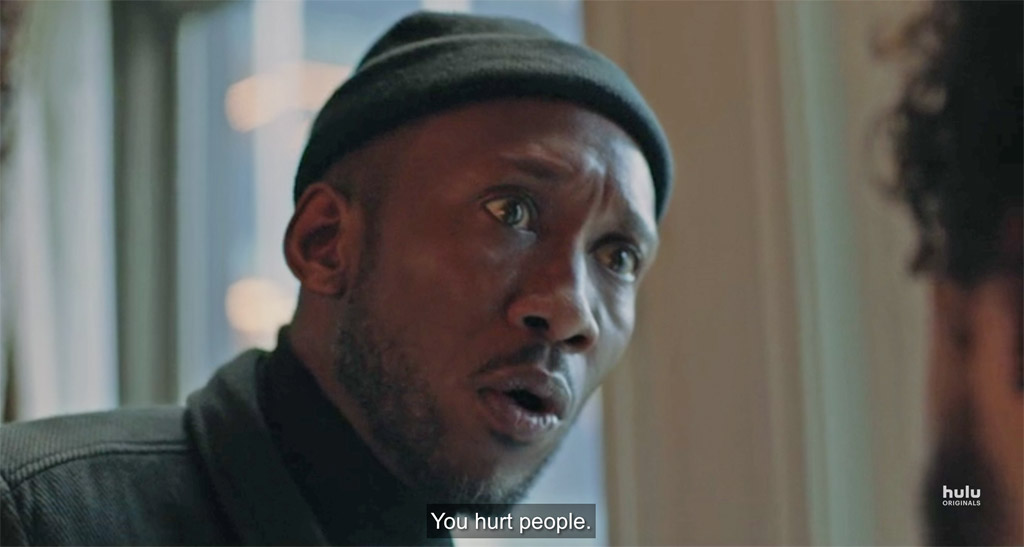
If Mahershala Ali ever said this ^^^ to me, I’d be terrified into changing my ways forever. Will Ramy adapt, though? This show leaves him in a precarious position after an impeccably plotted lead-up. And it’s a wise (and bold) move for the show to not only roast its protagonist but use such a charismatic and in-demand actor to do so. Ramy also builds up its “sidelined” characters along the way, as I’ll touch on below. That way, other players can shine, and we’re not simply hate-watching the leading dude.
3. Some Engrossing Character Studies:
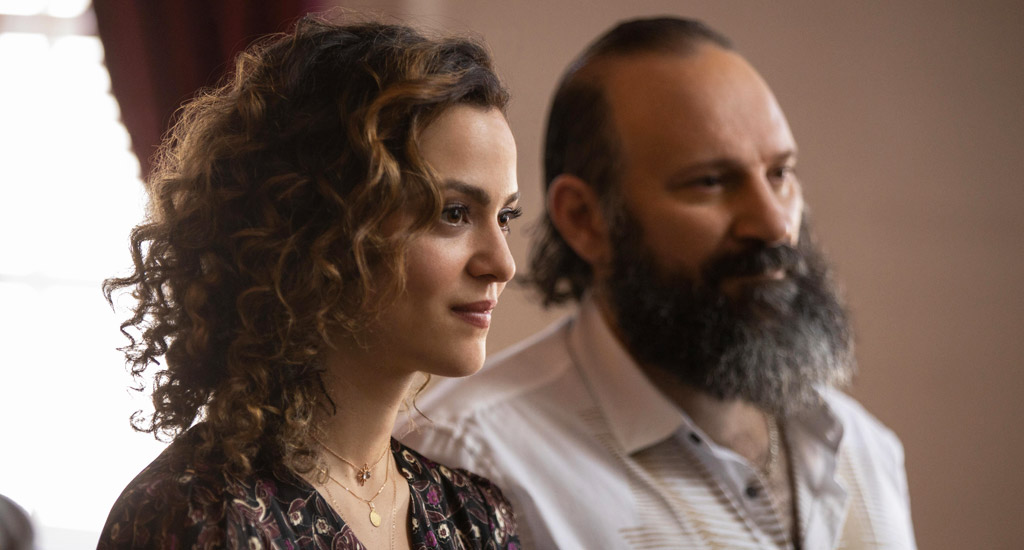
The second season keeps itself poppin’ by knocking out some capsule episodes to flesh out Ramy’s family, including some arguably overdue focus for his sister, Dena, portrayed by May Calamawy. She plays a “normal” Muslim women, meaning that she’s not simply written under the male gaze, and it’s a refreshing approach. Dena gets her own capsule episode, along with much more face time during the second season, while all hell crashes down around her brother. The character’s up for the challenge, deftly illustrating the difference between generations while dancing between tradition and modernity as she navigates being treated differently as a practicing Muslim than her brother.
Another valuable show inclusion occurs near the end of Season 2 with Dena and Ramy’s uncle, Naseem (Laith Nakli). This guy is everyone’s racist uncle. He’s truly abhorrent (and homophobic) and can often be found swinging his d*ck around in the gym’s weight section. He’s a womanizer who degrades and sexualizes every female, including his own niece, and he’s filled with frustration because he’s probably the most inauthentic person on the series. We learn a lot about Naseem (and his ilk) during his capsule episode, including how he became this way and why he’s such a danger to not only the Muslim community but the world at large. It’s a powerful display from the show on how it’s not only willing to highlight the positive examples within the community but the bad-PR bunch as well. And hopefully, we won’t see Ramy turn into this guy.
4. A Rare Deep Dive For The Muslim-American Experience:
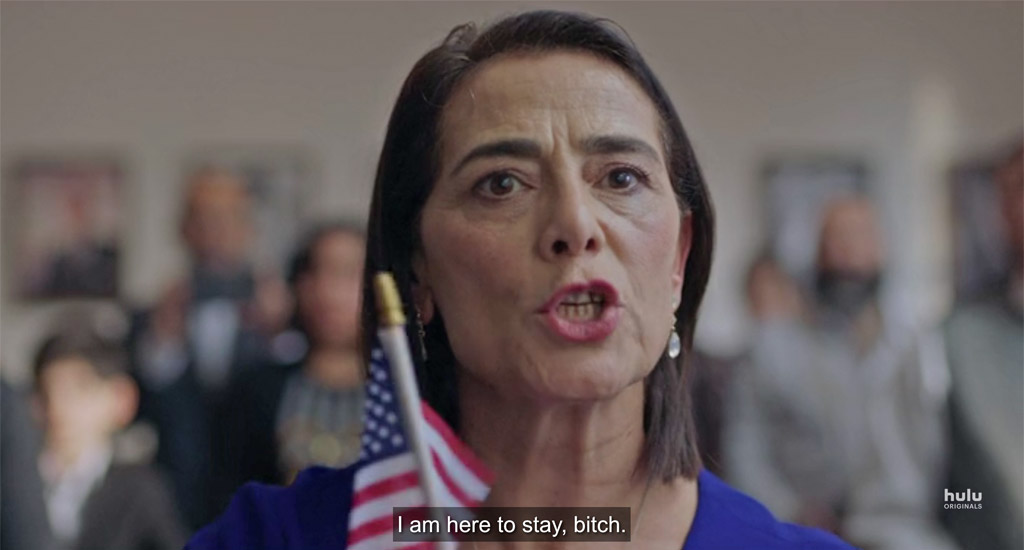
The subject of a practicing Muslim family attempting to feel out life in New Jersey isn’t exactly something that’s been explored in popular culture (especially at this level of depth) until now. Despite all of Ramy’s departures from intent, the Muslim faith receives the utmost respect in this series while also showing its struggles. Take Ramy’s trip to Egypt, for example, when he was left aghast to be told that he was joyriding through other people’s trauma. And look at how he attempted to only seize upon practices (like rationalizing that he should have more than one wife) that are convenient to him. The show doesn’t shy away from illustrating exactly why American (and in Ramy’s case, Muslim-American) stereotypes of the community can hurt (a lot).
More than that, the experiences of the women in Ramy’s family aren’t shoved to the backburner. His mother, Maysa (Hiam Abbass), takes on a telling journey during her Lyft gig, which she insists upon doing to overcome her loneliness. She is, of course, hapless while attempting social skills on her rides, but she’s trying, which is more than what one can say for her son. And when she becomes a U.S. citizen, she tells a portrait of President Trump exactly what she thinks. Granted, I’m not sure that most people would want to be in the United States in 2020, if given the chance to be in, say, New Zealand or even Antarctica. Yet under ideal U.S. circumstances, it’s a fine place to be, and Ramy’s mom has made it known that she ain’t leaving.
5. Ramy Encourages Our Own Self-Examination:
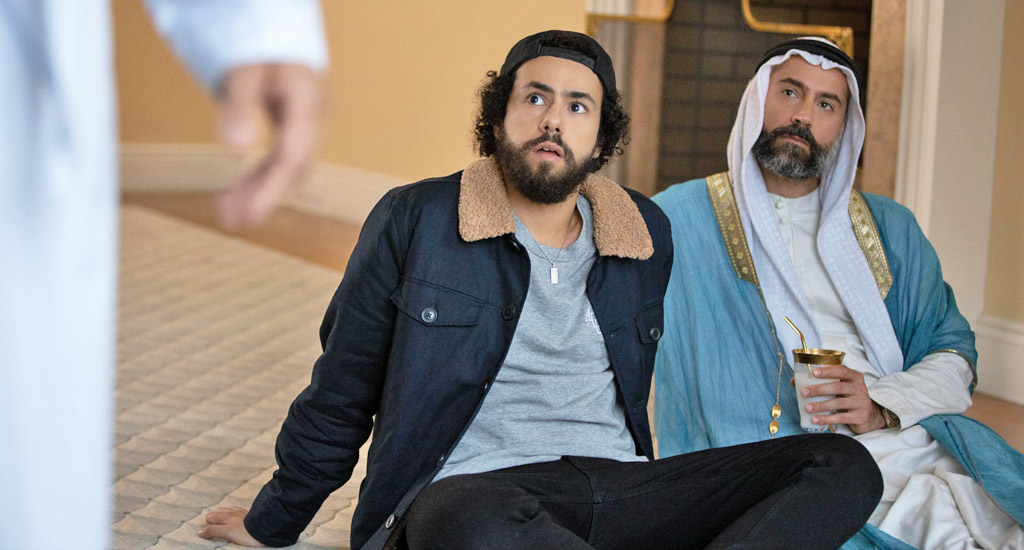
As discussed above, Ramy presents us with an exceedingly flawed protagonist. The show doesn’t want to make him an example, and we not only see the beautiful aspects of his experiences but also the ridiculous ones. We watch him struggle to observe Ramadan, and we’ve seen him attempt to justify a porn addiction because it keeps him from having premarital sex (that doesn’t last long). And he’s exceedingly greedy (details would be a spoiler) this season in his love life. Yet Ramy is a mirror for the audience to gaze upon itself and consider the ways that we can become better. Maybe we don’t need to be perfect, but we all must learn how to coexist without hurting others.
That’s what it all comes down too, that Golden Rule. And as much as we’d like to admit, Ramy’s actions are rarely as far-fetched as viewers would like to imagine. He makes the wrong decisions, time and time again, not unlike characters from Always Sunny or Seinfeld, and with often more permanent and damaging consequences, but he is relatable. I want to believe that Ramy’s capable of living without causing collateral damage, which is something that should be a universal aspiration. And I’m looking forward to seeing if he improves (after all that naval-gazing) in a third season.
The second season of Hulu’s ‘Ramy’ is currently streaming.
